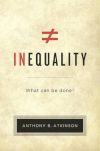Urban Economics and Urban Policy: Challenging Conventional Policy Wisdom
Reviewer: Neil Reeder, Director, Head and Heart Economics
In this bold, exciting and readable volume, Paul Cheshire, Max Nathan and Henry Overman illustrate the insights that recent economic research brings to our understanding of cities, and the lessons for urban policy-making. The authors present new evidence on the fundamental importance of cities to economic wellbeing and to the enrichment of our lives. They also argue that many policies have been trying to push water uphill and have done little to achieve their stated aims; or, worse, have had unintended and counterproductive consequences.
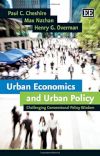
The Trouble with Europe
Reviewer: Donald Anderson
The EU needs fundamental reform: it has not delivered the prosperity and growth it promised; the euro has turned out to be part of the problem rather than the solution; the EUs share of world GDP is set to fall sharply. This updated and expanded edition of Roger Bootle s critically acclaimed book includes new material on federal union, policies to avert catastrophe in the Eurozone (including the Greek situation) and mass migration.
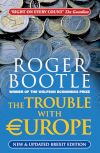
Wildcat Currency: How the Virtual Money Revolution is Transforming the Economy
Reviewer: Nigel Dodd, Professor of Sociology, London School of Economics
Today's economy has seen an explosion of new forms of monetary exchange not created by the federal government. Credit card companies offer points that can be traded in for a variety of goods and services, from airline miles to online store credit. Online game creators have devised new mediums of electronic exchange that turn virtual money into real money. In this dynamic and essential work, Edward explores the current phenomenon of virtual currencies and what it will mean legally,
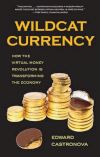
Breadline Britain. The rise of mass poverty
Reviewer: Rosemary Connell
Poverty in Britain is at post-war highs and - even with economic growth -is set to increase yet further. Food bank queues are growing, levels of severe deprivation have been rising, and increasing numbers of children are left with their most basic needs unmet.
Based on exclusive access to the largest ever survey of poverty in the UK, and its predecessor surveys in the 1980s and 1990s, Stewart Lansley and Joanna Mack track changes in deprivation and paint a devastating picture of the reality of poverty today and its causes.
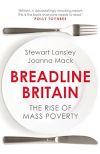
Misbehaving: How Economics Became Behavioural
Reviewer: Ian Bright
Why are we more likely to forgo the opportunity to sell a £100 bottle of wine rather than actually taking money out our wallet to pay for it, when ultimately the 'opportunity cost' of doing so is the same? Why would the 'endowment effect' mean that we value a free ticket worth hundreds of pounds more than the money we would get from selling it? In this new, ambitious work, Thaler presents his findings in behavioural economics and breaks down the biases and irrational tendancies in our thinking, showing us how to avoid making costly mistakes in life.
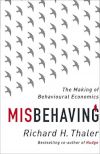
Why Are We Waiting? The Logic, Urgency and Promise of Climate Change
Reviewer: Ian Roderick, Director, The Schumacher Institute
The risks of climate change are potentially immense. The benefits of taking action are also clear: we can see that economic development, reduced emissions, and creative adaptation go hand in hand. In this book, Nicholas Stern explains why, notwithstanding the great attractions of a new path, it has been so difficult to tackle climate change effectively. He makes a compelling case for climate action now and sets out the forms that action should take.
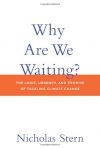
The Business of Sharing: Making it in the New Sharing Economy
Reviewer: Helen Solomon, Lecturer in Economics, De Montfort University
Today, 'collaborative consumption' lets people earn over $15 billion a year by sharing what they already own: from cars and homes to money and time. And that's almost nothing. According to PwC, the sharing economy will grow into a $335 billion market by 2025. Written by one of the business leaders of the movement, The Business of Sharing is an insider's guide for anyone thinking of entering the sharing economy and looking to profit from the upheavals ahead.
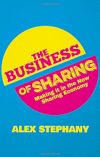
Forging capitalism
Rogues, swindlers and the rise of modern finance
Reviewer: Bill Allen
In a story teeming with playboys and scoundrels and rich in colorful and amazing events, Klaus chronicles the evolution of trust through three distinct epochs: the age of values, the age of networks and reputations, and, ultimately, in a world of increased technology and wealth, the age of skepticism and verification. In today’s world, where the questionable dealings of large international financial institutions are continually in the spotlight, this extraordinary history has great relevance, offering essential lessons in both the importance and the limitations of trust.
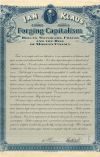
Measuring Happiness: The Economics of Well‑Being
Reviewer: Tony Dolphin, Senior Economist, IPPR
The authors examine the evolution of happiness research, considering the famous "Easterlin Paradox," which found that people's average life satisfaction didn't seem to depend on their income. But they question whether happiness research can measure what needs to be measured. They argue that we should not assess people's well-being on a "happiness scale," because that necessarily obscures true social progress. Instead, rising income should be understood as increasing opportunities and alleviating scarcity.
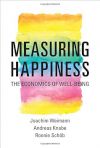
Inequality: What can be done?
Reviewer: Dame Kate Barker, Chairman, Society of Business Economists
Inequality is one of our most urgent social problems. Curbed in the decades after World War II, it has recently returned with a vengeance. Anthony Atkinson has long been at the forefront of research on inequality, and brings his theoretical and practical experience to bear on its diverse problems. In this book, he presents a comprehensive set of policies that could bring about a genuine shift in the distribution of income in developed countries.
